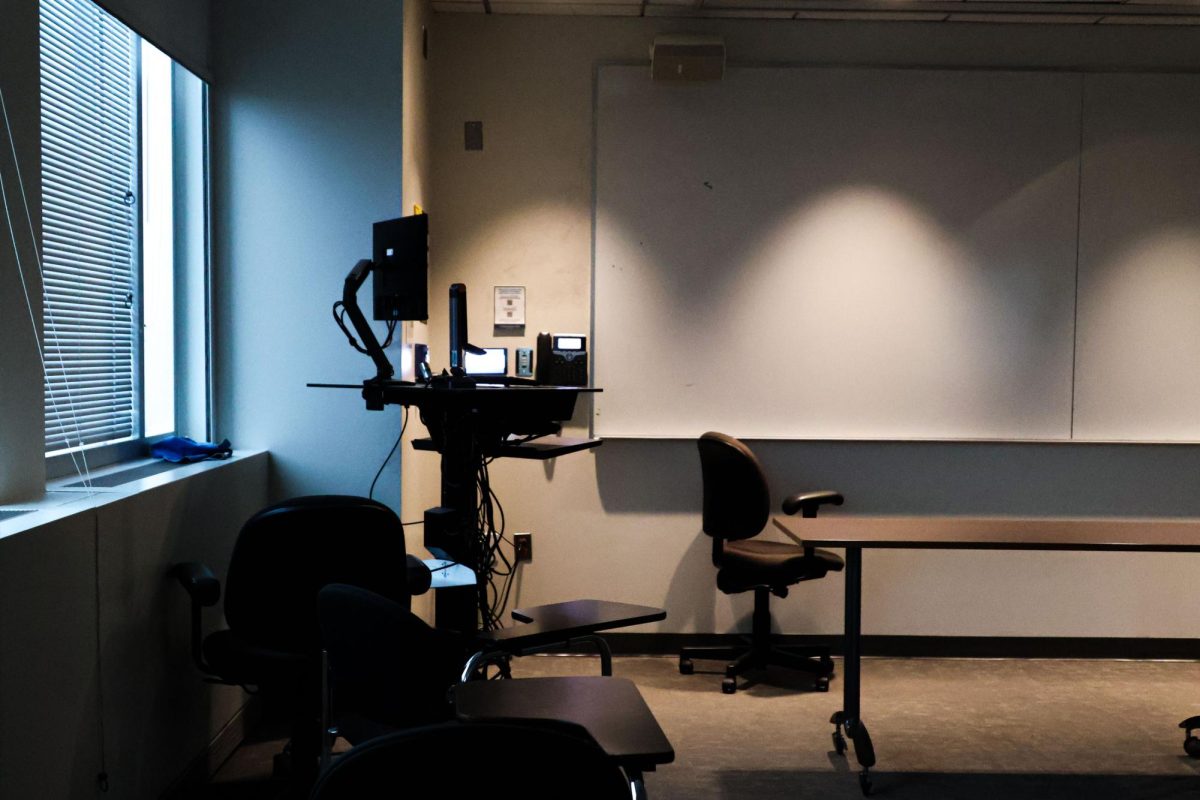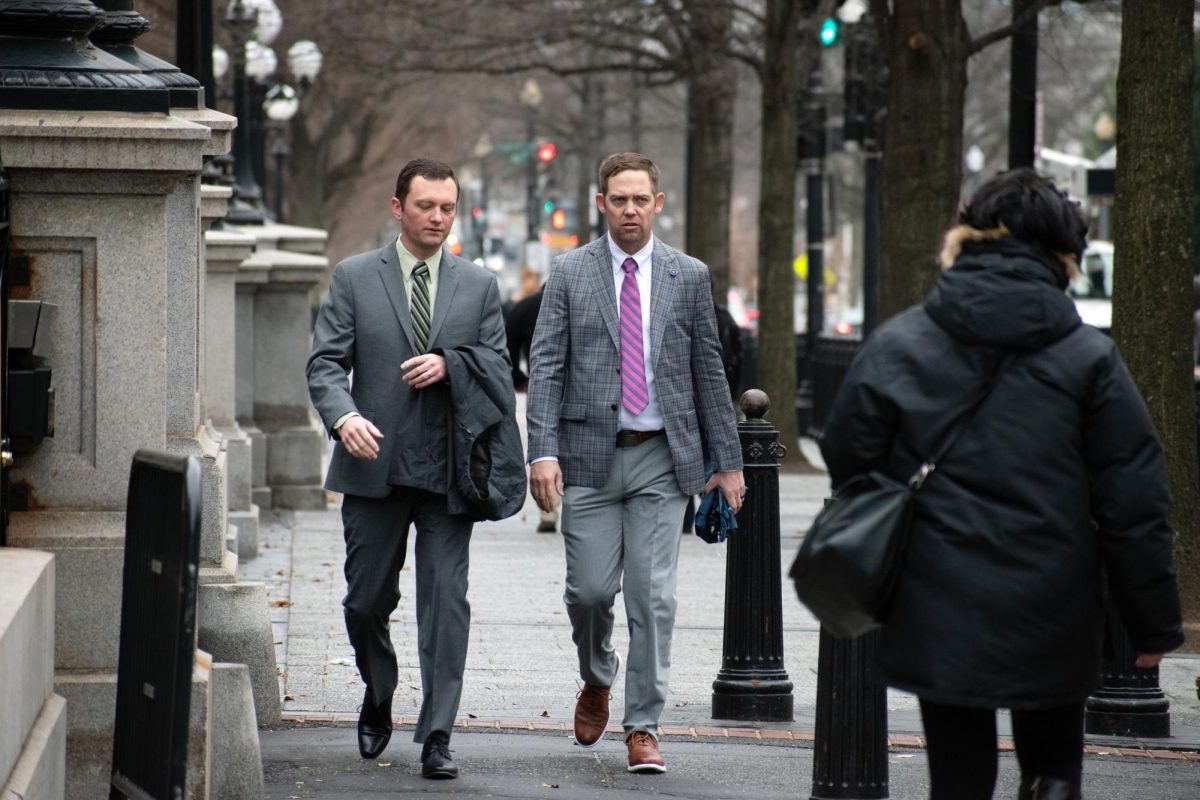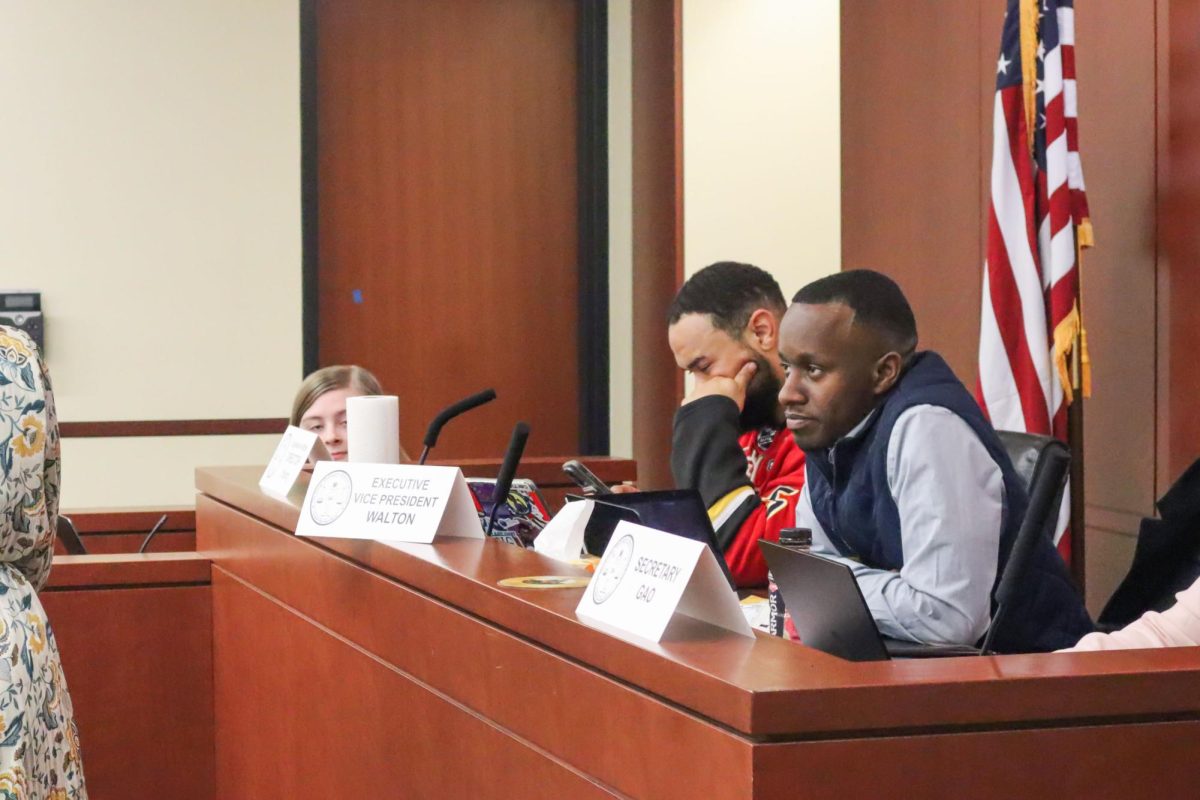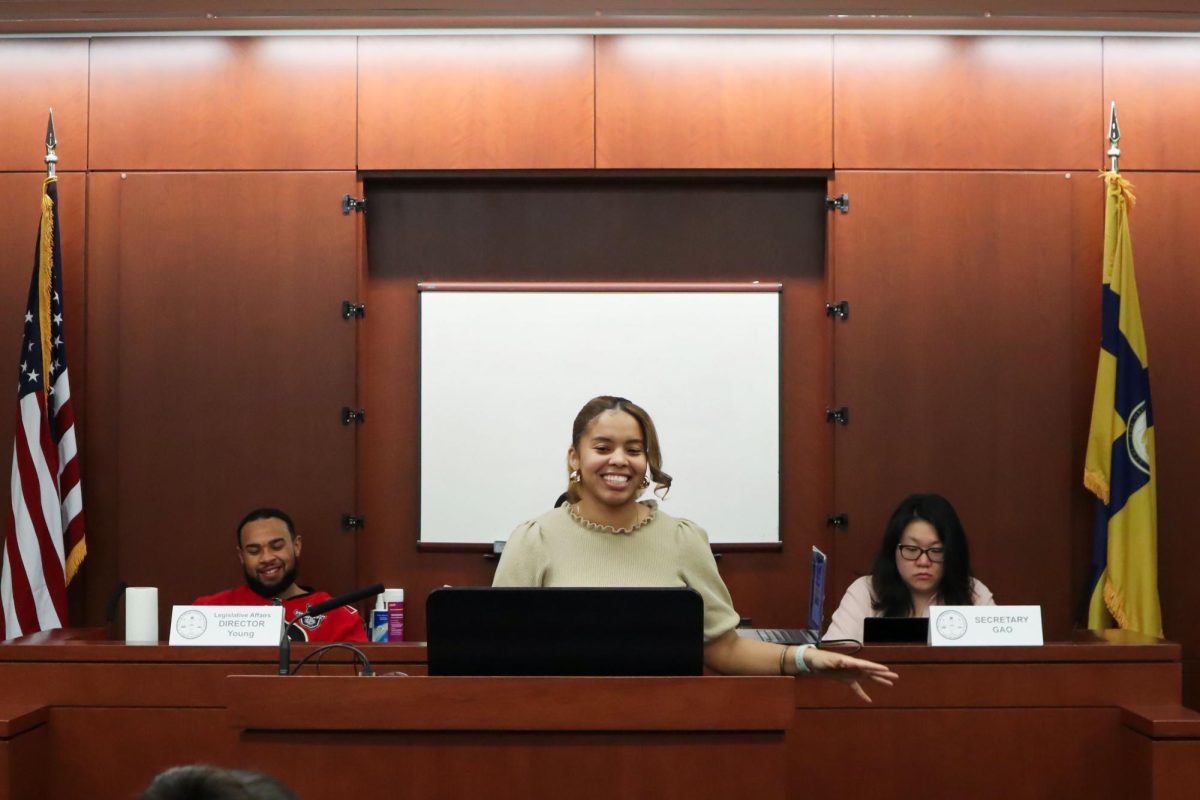Junior Edy Koenigs, who resigned from the Student Association executive cabinet last summer, became the first to announce a bid for the SA presidency early Thursday.
Koenigs, who is studying religion and political science, said if elected, she plans to address sexual assault on campus, promote diversity training for professors and increase accessibility and mental health resources, among other policies that will be available on her campaign website. She resigned as one of SA President Christian Zidouemba’s senior policy advisers in July after she and other cabinet members claimed Zidouemba threatened to fire them over disputes in the aftermath of the reversal of Roe v. Wade.
Koenigs said she plans to create a report form sexual assault survivors can submit.
“Everyone knows it’s an issue, and it’s gone unresolved for far, far too long,” she said. “I’ve seen it, my peers have seen it, and it truly needs to be addressed.”
She said her website will become available after the Joint Elections Commission approves its publication. She said she began considering a run for office last September.
“I’ve been thinking about it for a while,” Koenigs said.
She said in the wake of prejudiced instances with professors – like a professor who defended the use of a racial slur in class last September, a professor who read the N-word in class last January and a professor who barred a service dog from class last February – she plans to work with officials to mandate that professors participate in diversity, equity and inclusion trainings. She said she wants to add mandatory trainings to contracts for new professors.
“From what I understand, there’s an optional DEI training for professors,” she said. “That needs to not be optional. That needs to be mandatory.”
She said she plans to work with student organizations like the Disabled Students Collective to advocate for students to be permitted to use laptops and tablets in all classes by approaching individual schools and departments within the University. Students with disabilities may require laptops or tablets to accommodate visual aids or efficient typing.
The University’s Disability Support Services allow for professors to make exceptions to let students use laptops. To register for services, students are encouraged to provide documentation and must meet with a DSS representative.
“It’s a major concern because not everybody has the money for a diagnosis,” she said. “Not everybody has the time for a diagnosis.”
Koenigs said she plans to repeal section 51901(3) of the SA bylaws to allow student organizations to request funding for food after the senate amended the bylaws in late February to allow funds for noncultural food, but it would still give preference to funding cultural foods.
Last January, prior to the amendment, the SA limited its budget so it could only fund cultural and religious food.
Koenigs said she plans to extend the hours of the Lerner Health and Wellness Center to midnight.
She said she plans to host an educational event bringing in experts on eating disorders on college campuses, along with events in residence halls teaching strategies for developing healthy relationships with food. She said she plans to share information about what disordered eating looks like and how students can seek help.
“It’s no secret that eating disorders are statistically the most fatal mental health disorder,” she said. “GW is not an exception to its effects.”
Koenigs said she plans to hold events like a discussion roundtable to engage with students and hear their concerns and policy suggestions. She said prior to announcing her bid for the presidency, she engaged with students via Instagram questionnaires.
“Even before I started this campaign, I’ve reached out to students and asked what issues need to be addressed,” she said. “What do you think is not being addressed on campus?”
Koenigs said she wants to host “light-hearted” campaign events once the campaign period begins March 29, like handing out stickers and candy.
“I want to bond regardless of policy,” she said. “I want to be able to bond over sugary sweets or some other type of food where we can really just communicate with each other, even if it doesn’t have to be on policy.”
Koenigs said while she initially did not think she would participate in the SA, when she saw a friend work on an initiative to add a requirement for students to take a course on diversity, equity and inclusion, she became inspired because she saw that concrete change was possible. She said former SA President Brandon Hill first appointed her as the SA’s secretary of affordability in his cabinet during her sophomore year.
“I feel like just being able to see the policy come to light and actually see that I can actually change things is what really has boosted me, whether in the SA or not, to address change on campus,” she said.
Koenigs said she’s most proud of a project last summer when she worked with the Disabled Students Collective, scheduling and attending meetings to help fill vacancies in the Office of Advocacy and Support.
Koenigs said during her sophomore year, she contributed to the GWorld Outage Report Form to help GWorld vendors restore their systems. She said the form allowed students to report when vendors had malfunctioning GWorld systems, and she sent the report to the GWorld office and the Office of Business Services on a biweekly basis.
Koenigs said despite her resignation this summer, she chose to look to return to the SA because she “couldn’t stand by” while advocacy issues went unaddressed. She said she chose the slogan “Edy 4 Everyone” to encapsulate her desire for students to reach out to her.
“I welcome everyone and anyone to reach out to me on issues that are on campus that remain unaddressed,” she said. “And I truly, truly look forward to explaining how these issues will be fixed in my administration.”











